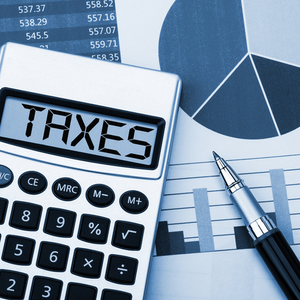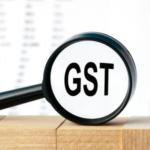Supreme Court judgment – Functionality test to be applied for availing input tax credit

The Hon’ble Supreme Court of India has delivered an important (and much awaited) judgment on availability of input tax credit (ITC) relating to input services used for construction of an immovable property. This judgment also addresses the constitutional challenge for Section 17(5)(c) and Section 17(5)(d) of the Central Goods and Services Tax Act, 2017 (CGST Act). These sections imposed certain restrictions for availing ITC on input services used for construction of an immovable property.
The Hon’ble Supreme Court of India in the case of Chief Commissioner of Central Goods and Services Tax & Ors. v. M/s Safari Retreats Private Limited & Ors.,[i] dealt with the issue of:
(a) interpretation of Section 17(5)(c) and (d) of the CGST Act; and
(b) constitutional validity of Section 17(5)(c) and (d) of the CGST Act and section 16(4) of CGST Act.
In this article, we have discussed the ruling and its possible implications.
Facts of the case
The taxpayer was engaged in construction of a shopping mall for the purpose of letting out premises in the mall. Various inputs, materials and services such as construction material, engineering services, architectural services, legal and professional services etc., were availed by the taxpayer during the construction. These goods and services used in the construction of the mall attracted a levy of Goods and Services Tax (GST). The taxpayer was letting out units in the shopping malls on which GST was on a forward charge basis, renting/ leasing of unit is a supply of service under the CGST Act.
Given that GST was payable on the output side (i.e. letting out/ leasing of unit in the mall), the taxpayer wished to offset the accumulated ITC (on purchase of goods and services) against the output GST payable on rental income. GST Authorities were of the view that ITC cannot be availed on account of the exception carved out under Section 17(5)(d) of the CGST Act. An appeal was preferred before the Orissa High Court who ruled in favour of the taxpayer. The GST Authorities are now before the Supreme Court, challenging the view taken by the Orissa High Court.
The following are the questions of law admitted by the Supreme Court:
- Whether the definition of “plant and machinery” in the explanation appended to Section 17 of the CGST Act applies to the expression “plant or machinery” used in clause (d) of sub-section (5) of Section 17?
- If it is held that the explanation does not apply to “plant or machinery”, what is the meaning of the word “plant”?
- Whether clauses (c) and (d) of Section 17(5) and Section 16(4) of the CGST Act are unconstitutional?
Ruling of the Supreme Court
Meaning of the expression “Plant or Machinery”
The Supreme Court observed that “if the legislature intended to give the expression “plant or machinery” the same meaning as “plant and machinery” as defined in the Explanation, the legislature would not have specifically used the expression “plant or machinery” in Section 17(5)(d). The legislature has made this distinction consciously. Therefore, the expression “plant and machinery” and “plant or machinery” cannot be given the same meaning.”
Meaning of the expression “plant and machinery” is clear from the Explanation in Section 17 and the definition specifically excludes land, building or any other civil structure. However, the expression “plant or machinery” has a different connotation. It can either be a ‘plant’ or ‘machinery’. As the meaning of ‘plant’ is not defined under the CGST Act or the rules framed thereunder, it should be construed as per its ordinary meaning in commercial terms.
The Supreme Court also observed that whether a building is a ‘plant’ is a question of fact and should be decided on the basis of test of functionality and that if a building qualifies to be a plant, ITC can be availed against the supply of services in the form of renting or leasing the building or premises, provided other terms and conditions of the CGST Act and Rules framed thereunder are fulfilled.
However, in the appeal before the Orissa High Court, it was not decided whether the mall in question satisfies the functionality test of being a ‘plant’. Thus, the case has to be remanded back to the High Court to apply functionality test and determine whether the mall qualifies to be a ‘plant’.
Constitutional validity of Section 17(5)(c) and (d)
The Supreme Court noted that exceptions carved out for availing ITC in Section 17(5)(c) and (d) cannot be said to be discriminatory. As regards Section 16(4), the Court observed that the petitioners have not shown how the provision is arbitrary and discriminatory. The fact that the provision could have been drafted in a better manner or more articulately is not sufficient to attract arbitrariness. Accordingly, the constitutional validity is upheld.
Conclusion
The Supreme Court held that Sections 17(5)(c) and (d) and Section 16(4) of the CGST Act are constitutionally valid and not violative of Article 14 of the Constitution. Further, the expression “plant or machinery” used in Section 17(5)(d) cannot be given the same meaning as the expression “plant and machinery” defined in the Explanation to Section 17. While interpreting the term ‘plant’ for the purpose of Section 17(5)(d), the Court has taken a view that if the construction of a building was essential for carrying out the activity of supplying services, such as renting or giving on lease or other transactions in respect of the building or a part thereof, which are covered by Schedule II (Clause 2 and 5) of the CGST Act, the building could be held to be a plant. Functionality test should be applied on a case-to-case basis to decide whether a building can be categorized as a ‘plant’, so as to avail ITC of input goods and services. In the light of the above ratio, the judgment of the Orissa High Court was upheld, and the writ petitions are remanded back for the limited purpose of deciding whether, in the facts of the case, the shopping mall is a “plant” in terms of Section 17(5)(d).
Our Thoughts
This judgment has significant implications for businesses engaged in real estate and related sectors involving construction of an immovable property. With this decision, the court has allowed commercial real estate industry players to claim ITC on construction costs, although the introduction of ‘functionality test’ will lead to varied interpretations and protracted litigation. Overall, this is a landmark decision for the real estate sector and also in relation to interpretation of tax laws, balancing the principles of strict construction with the need for practical fairness.
The information contained in this document is not legal advice or legal opinion. The contents recorded in the said document are for informational purposes only and should not be used for commercial purposes. Acuity Law LLP disclaims all liability to any person for any loss or damage caused by errors or omissions, whether arising from negligence, accident, or any other cause.
[i] TS-622-SC-2024-GST



